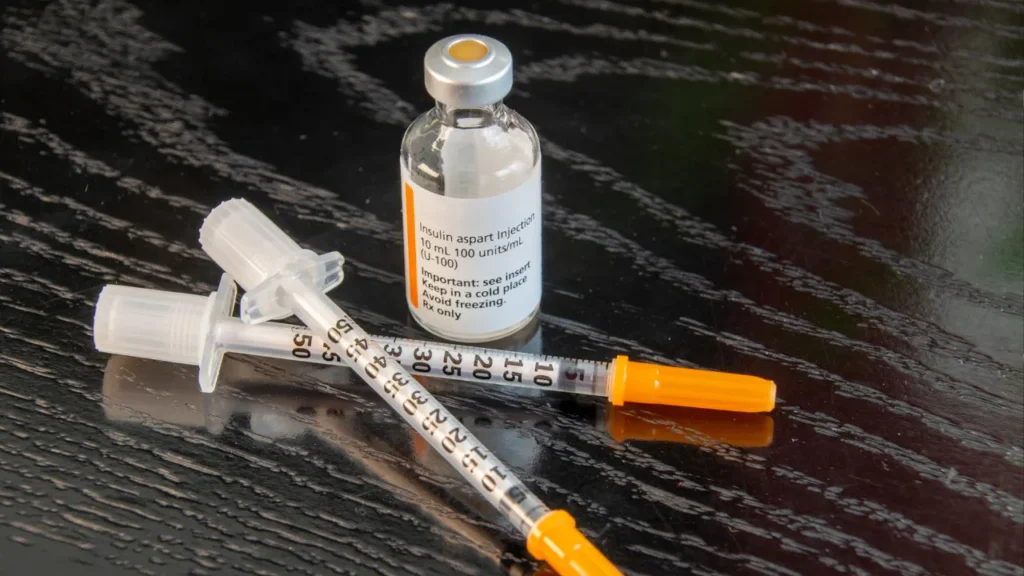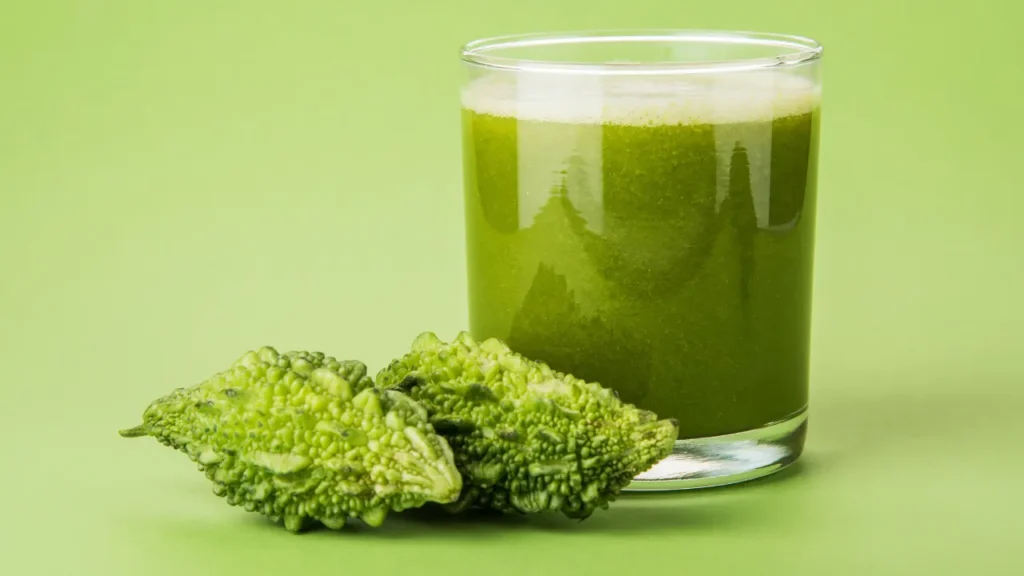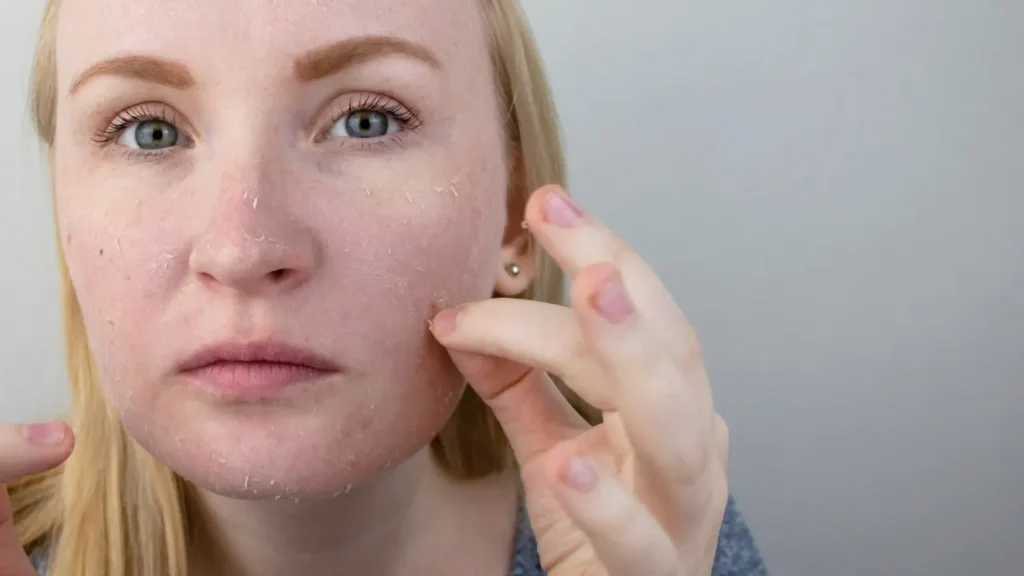Description
Diabetes may result in a variety of skin problems, involving dry skin, itching, infections, rashes, and wounds that heal poorly. Diabetes-related skin issues are primarily caused by elevated levels of blood sugar, which possess the ability to damage blood vessels and reduce blood flow to the skin. Diabetes may weaken immunity, rendering it more challenging for the human body to fight against infections.
People with diabetes may experience a wider range of skin problems. The following list includes a handful of the most prevalent skin conditions associated with diabetes: –
Skin infections: Skin infections caused by bacteria, fungi, and viruses are more common in diabetics. The extent of such infections may vary from minor problems like folliculitis, a condition that affects the follicles that produce hair, to increasingly worse conditions such as necrotizing fasciitis, a condition where soft tissues in the body undergo necrosis and carries a high risk of fatality.
Itching: Due to the accumulation of sugar within the bloodstream, individuals who have diabetes might experience itching. Problems like pruritus, or skin itching, may occur as a result of this.
Dry skin: Diabetes can cause dry skin because it causes the skin to produce less oil. The skin may become dry, damaged, and vulnerable to infection as a result.
Diabetic dermopathy: The formation of circular, reddish-brown, or brown spots on one’s skin is the main feature of this skin disorder. These spots are usually located on the shins, and they may itch but they do not pose any danger.
Scleroderma diabeticorum: This skin disorder is distinguished by the expansion of one’s skin across the upper back and backside of the neck. This ailment is more prevalent in people having diabetes of the type 2 variety and could be an indication of poor regulation of blood sugar.
Acanthosis nigricans: The growth of dark, heavy, and velvety patches of skin on the body is the main feature of this skin disorder. Usually, the groin, armpits, and neck are where these patches appear.
Necrobiosis lipoidica diabeticorum: The growth of brown or red blotches on one’s skin constitutes the main feature of this skin disorder. These lesions may develop into ulcers and require a very long time to cure.
You May Also Like:
MUSHROOMS FOR ATHLETES? THIS GAME-CHANGER MAY SURPRISE YOU
FINDING THE BEST TURKEY TAIL MUSHROOM POWDER: 5 TOP BRANDS REVIEWED
Diabetes: Dermatologist-recommended skin care for people with diabetes: Description, Causes, And Treatment Protocol is an original (HealthXWire) article.
Possible Causes
Several factors, including the ones listed below, can contribute to diabetes-related skin issues: –
High blood sugar levels: Blood vessels can be harmed by elevated blood sugar levels, which also reduces blood circulation to the skin, causing dryness, itching, and delayed healing of wounds.
Weakened immune system: Diabetes can impair immunity, making it more difficult for the body’s ability to defend itself from infections.
Nerve damage: Diabetes can harm the nerves, which is also referred to as diabetic neuropathy, along with causing loss of feeling in both feet and hands. Due to the absence of feeling, cuts, and injuries may go undetected longer, increasing the risk of infection and delaying the healing process.
Poor circulation: Poor circulation brought on by diabetes might lessen blood circulation to the skin which comes alongside with prolonged healing.

Exacerbating and Mitigating Factors
The following factors might either increase or alleviate the skin issues linked to diabetes: –
Blood sugar control: The possibility of skin issues linked to diabetes can be decreased by maintaining appropriate blood sugar management.
Moisturizing: By regularly moisturizing, people may decrease diabetes-related dryness and irritation.
Hygiene: Infection risk can be decreased by following good hygiene habits including thoroughly cleaning and drying one’s skin.
Foot care: Foot disorders can be prevented with proper foot care, which includes periodic examinations and wearing the right shoes.
Standard Treatment Protocol(s)
Diabetes-related skin issues are often treated with a mix of oral drugs, lifestyle modifications, and topical therapies. Changing your lifestyle may involve giving up smoking, controlling your blood sugar, and taking care of your skin. However, depending on the exact skin issue, many skin problems have different typical treatment regimens. The following are a few typical treatments: –
Prescription medications: Dermatologists may recommend the following drugs as prescription treatments for diabetes-related skin issues: –
- Metformin
In people who have type 2 diabetes, this drug is commonly used to control blood sugar levels. Additionally, it might lessen the possibility of getting skin infections.
- Antibiotics
Cellulitis and impetigo are two examples of skin illnesses caused by bacteria that can be treated with antibiotics.
- Insulin
People experiencing type 1 diabetes along with certain individuals suffering from type 2 diabetes utilize insulin to control their blood sugar levels. The likelihood of developing skin issues might be decreased with good blood sugar management.
- Corticosteroids
Skin conditions such as eczema and psoriasis can cause inflammation and irritation, which can be treated with oral or topical corticosteroids.
- Antifungal medications
Athlete’s foot and ringworm are two examples of skin conditions that can be treated with antifungal drugs.
Over-the-counter formulations: Dermatologists may suggest multiple over-the-counter medications to treat skin issues brought on by diabetes, which include the following: –
- Antifungal creams
Ringworm and athlete’s foot are two examples of skin illnesses caused by fungi that can be treated with over-the-counter creams that have antifungal properties.
- Hydrocortisone cream
Skin conditions such as eczema and psoriasis can cause itching and inflammation, which can be treated with over-the-counter creams containing hydrocortisone.
- Moisturizers
Utilizing moisturizers regularly helps to minimize dry skin and stop cracking, which may result in infections.


Treatment Options
Besides standard procedures, a variety of therapeutic modalities may be helpful for diabetes. A few of them include: –
Nutritional supplements: Dermatologists may suggest various nutritional supplements to treat skin issues brought on by diabetes, such as the following: –
- Vitamin D
In addition to being required for immunological function, vitamin D is also necessary for good skin. According to studies, those who have diabetes possess a greater probability of being vitamin D deficient, which could raise their chance of having skin issues. Egg yolks, fatty fish, and foods that have been fortified with vitamin D may all be utilized to supplement your diet in addition to the vitamin D that is naturally created by the human body while exposed to sunshine.
- Omega-3 fatty acids
Essential fatty acids like omega-3s are crucial for the body’s general well-being, including the maintenance of good skin. They can be found in plant-based foods like flaxseeds and chia seeds along with fatty fish like tuna, salmon, and sardines.
- Probiotics
Probiotics are advantageous bacteria that may help in regulating the health of the gut, which is crucial for controlling blood sugar levels among diabetics. Probiotics may aid diabetics in reducing inflammation and increasing insulin sensitivity. Probiotics can be obtained as supplements or through foods such as kefir, yogurt, and sauerkraut.
- Magnesium
The body uses magnesium, an essential element, for a variety of biological functions, including controlling blood sugar levels. Green leafy vegetables, seeds, nuts, and whole grains are some food sources of magnesium.
- Zinc
Zinc is a necessary mineral that is needed for keeping the skin healthy and helping the wounds to heal. According to studies, individuals suffering from diabetes might be more susceptible to deficiencies in zinc, which can slow the healing of wounds and increase the likelihood that they will develop skin issues. Foods such as oysters, steak, and spinach are good sources of zinc.
Natural and herbal remedies: Dermatologists may advise using the following natural and herbal treatments to treat diabetes-related skin issues: –
- Aloe vera
For generations, people have utilized the herb aloe vera to treat a variety of illnesses, including skin issues. Aloe vera may aid in the reduction of inflammation and the promotion of wound healing in diabetics, according to studies.
- Tea tree oil
Tea tree oil might be antifungal and antibacterial, which could help lower the likelihood of getting skin infections. According to studies, tea tree oil can potentially lower your chance of getting skin infections, which include fungal ones such as ringworm and athlete’s foot.
- Cinnamon
People with diabetes have been demonstrated to benefit from cinnamon’s favorable effects on their blood sugar levels. It might aid in enhancing insulin sensitivity and reducing inflammatory responses in the human body. Cinnamon can be consumed as a supplement or added to dishes like oatmeal, smoothies, and baked products.
- Gymnema Sylvestre
Ayurvedic practitioners frequently utilize the herb gymnema sylvestre as a means to control blood sugar levels.
- Bitter melon
Fruits like bitter melon are frequently employed in conventional medicine to help control blood sugar levels. According to studies, bitter melon might help diabetics with better insulin sensitivity and lower blood sugar levels.
- Blood sugar management
Keeping blood sugar levels under control may assist in preventing and treating diabetes-related skin problems.
- Wound care
To stop the infection and speed healing, slow-healing wounds may need specialist wound care.


Conclusion
Diabetes is considered a chronic metabolic condition as it requires a lifelong commitment to effective management for optimal health outcomes. These involve regular monitoring of blood sugar levels, adherence to prescribed medications, and maintaining a balanced diet. Patients who suffer from diabetes may have other skin problems such as skin infections, itching, dry skin, diabetic dermopathy, etc. Hence, lifestyle modifications such as regular physical activity and weight management, are needed to maintain overall well-being.
Additionally, routine medical check-ups and collaboration with healthcare professionals are crucial for timely adjustments to the treatment plan. Due to the advancement of technology, people with diabetes can still live a long life with ease given that continuous glucose monitoring systems are upkeeped. Self-management and ongoing support from the healthcare community are pivotal to supporting those with diabetes to prevent secondary skin problems.


Additional resources for further reference
https://www.aad.org/public/diseases/a-z/diabetes-skin-care
https://diabetes.org/diabetes/skin-complications
https://www.webmd.com/diabetes/guide/diabetes-skin-care
Important Note: The information contained in this article is for general informational purposes only, and should not be construed as health or medical advice, nor is it intended to diagnose, prevent, treat, or cure any disease or health condition. Before embarking on any diet, fitness regimen, or program of nutritional supplementation, it is advisable to consult your healthcare professional in order to determine its safety and probable efficacy in terms of your individual state of health.
Regarding Nutritional Supplements Or Other Non-Prescription Health Products: If any nutritional supplements or other non-prescription health products are mentioned in the foregoing article, any claims or statements made about them have not been evaluated by the U.S. Food and Drug Administration, and such nutritional supplements or other health products are not intended to diagnose, treat, cure, or prevent any disease.
Table of Contents


